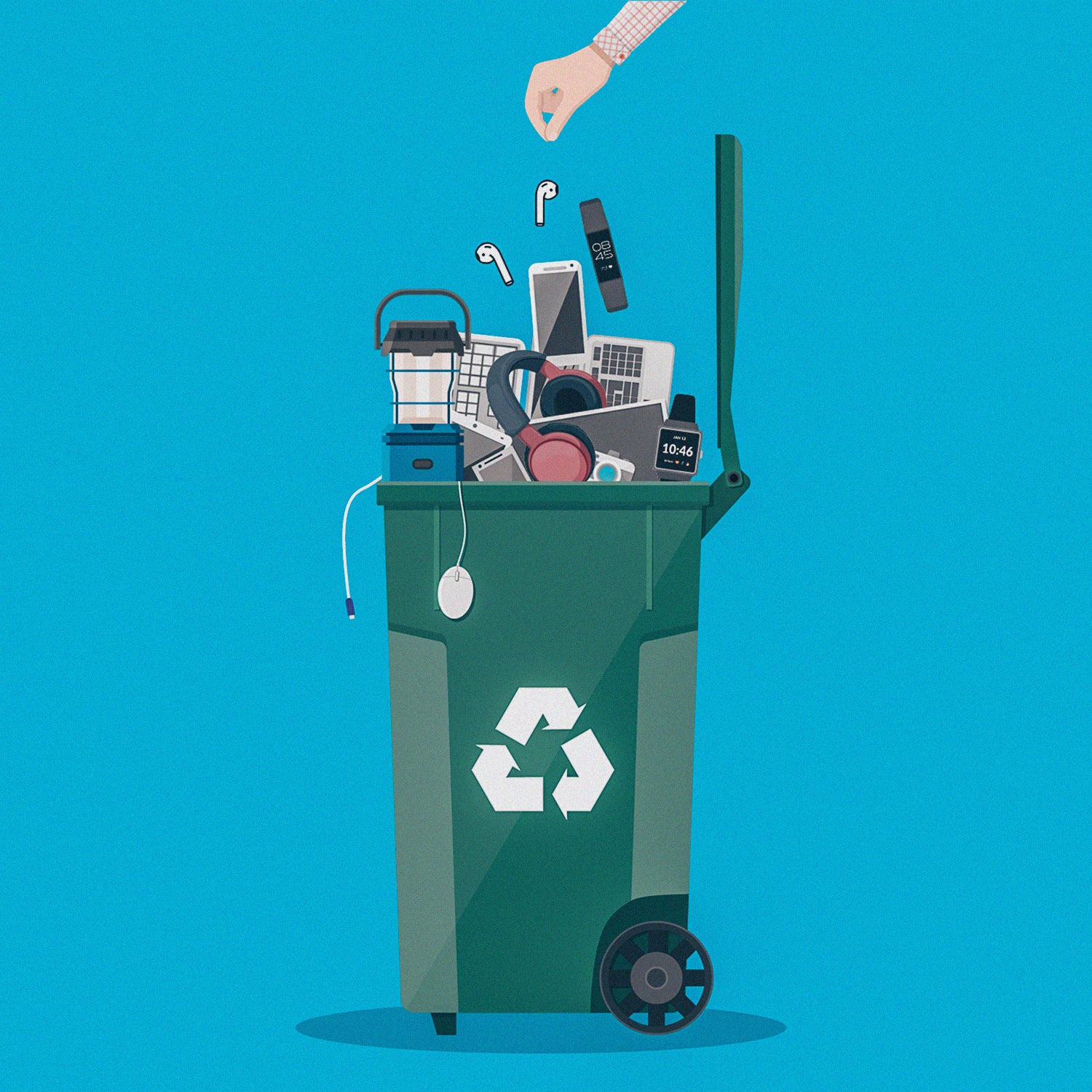R2 Certification Electronic Devices Recycling: Your Assurance for Accountable Disposal
Elevate Your E-Waste Management With R2 Certification: a Thorough Summary
One key technique to elevate e-waste management techniques is by achieving R2 certification. By exploring the procedures and advantages associated with R2 certification, a deeper understanding of exactly how it can transform e-waste administration approaches arises, dropping light on a course in the direction of sustainability and moral disposal techniques.
Relevance of E-Waste Management

When e-waste is not taken care of appropriately, these toxic substances can permeate right into the ecosystem, creating injury to wild animals and potentially entering the food chain, positioning dangers to human health. Additionally, the improper disposal of e-waste adds to air pollution and greenhouse gas exhausts, worsening environment adjustment and environmental degradation.

Benefits of R2 Certification

Firstly, R2 qualification improves credibility by showcasing a company's dedication to sustainable methods. It ensures consumers, partners, and stakeholders that the company sticks to rigorous requirements for e-waste management - r2 certification. This trustworthiness can bring about enhanced trust and boosted partnerships with customers who prioritize ecological responsibility
Secondly, R2 accreditation aids alleviate threats related to incorrect e-waste disposal. By following the strict standards established forth by the accreditation, companies can decrease the likelihood of data breaches, ecological contamination, and legal repercussions. This proactive method safeguards the business's online reputation and lessens prospective responsibilities.
Last but not least, R2 accreditation shows a dedication to environmental stewardship - r2 certification. By responsibly handling electronic waste through accredited procedures, organizations contribute to the preservation of resources, reduction of pollution, and promotion of a circular economic situation. This commitment not only profits the environment but likewise straightens with developing customer assumptions for sustainable organization practices
R2 Qualification Refine Introduction
Having actually established the advantages of R2 certification in advertising credibility, risk reduction, and ecological stewardship, it is vital to now describe the thorough procedure involved in obtaining this accreditation. The R2 accreditation process starts with an extensive review of the company's functional policies and procedures to guarantee compliance with the R2 criterion. This first analysis is vital in identifying any type of spaces that need to be addressed before proceeding even more.
Once the company's practices line up with the R2 conventional needs, an independent third-party auditor conducts an on-site audit to review the implementation and performance of these techniques. This audit includes a thorough evaluation of documents, interviews with personnel, and physical assessments of centers to validate compliance.
Following a successful audit, the organization gets an accreditation choice based on the auditor's findings. If authorized, the company is approved R2 accreditation, demonstrating its dedication to accountable e-waste monitoring. It is essential to keep in mind that keeping R2 qualification calls for recurring conformity with the requirement's requirements and routine audits to make certain continued adherence to best practices in e-waste recycling and disposal.
Secret Requirements for R2 Compliance
A use this link vital aspect of achieving R2 conformity is making sure that all electronic waste (e-waste) handling facilities fulfill rigid ecological and safety and security criteria. To adhere to R2 needs, organizations have to follow vital requirements that concentrate on liable e-waste monitoring techniques. These criteria consist of carrying out a recorded environmental, wellness, and safety administration system, making certain the protected handling of data-containing gadgets, and carrying out thorough downstream due persistance to track the final destination of e-waste materials.
Moreover, R2 compliance requires the proper pop over here testing, refurbishment, and recycling of digital equipment to prolong its useful life and lessen environmental impact. Facilities seeking R2 certification need to also focus on worker health and safety and security by giving essential training, personal protective tools, and a secure workplace. In addition, preserving thorough records of e-waste handling tasks and on a regular basis going through audits by approved accrediting bodies are crucial elements of showing ongoing conformity with R2 standards.
Impacts of Lasting E-Waste Practices
The implementation of lasting e-waste practices based on R2 compliance not only makes certain environmental and safety and security standards are fulfilled yet likewise considerably impacts the total lifecycle of digital items. By sticking to R2 requirements, digital waste monitoring processes become extra effective, minimizing the environmental footprint of electronic items. Lasting e-waste practices facilitate the correct disposal of digital elements, guaranteeing that unsafe materials are taken care of responsibly and do not wind up polluting the setting.
Furthermore, accepting sustainable e-waste practices advertises the circular economy by helping with the healing and reuse of valuable products from digital products. This not just saves precious resources however also reduces the requirement for raw material extraction, reducing the ecological influence of electronic production. Additionally, sustainable e-waste methods can contribute to work development in the recycling and refurbishment fields, cultivating economic development while promoting environmental obligation. Generally, the fostering of lasting e-waste methods under R2 accreditation functions as an important action in the direction of attaining a much more eco sustainable electronic devices sector.
Conclusion
In conclusion, her comment is here applying correct e-waste management techniques is crucial for ecological sustainability and resource preservation. R2 certification plays a vital function in making sure responsible handling and disposal of digital waste. By adhering to the stringent standards established forth by R2 standards, companies can not just decrease their environmental influence however likewise contribute to an extra sustainable future for generations to come.
One secret technique to raise e-waste management techniques is by obtaining R2 certification. By checking out the advantages and processes connected with R2 accreditation, a deeper understanding of how it can revolutionize e-waste management methods emerges, losing light on a path towards sustainability and honest disposal techniques.
The R2 qualification procedure starts with a complete evaluation of the organization's operational policies and procedures to guarantee conformity with the R2 standard. If authorized, the organization is granted R2 certification, demonstrating its commitment to responsible e-waste management. In general, the adoption of sustainable e-waste methods under R2 accreditation serves as a vital action towards attaining a much more environmentally sustainable electronics market.